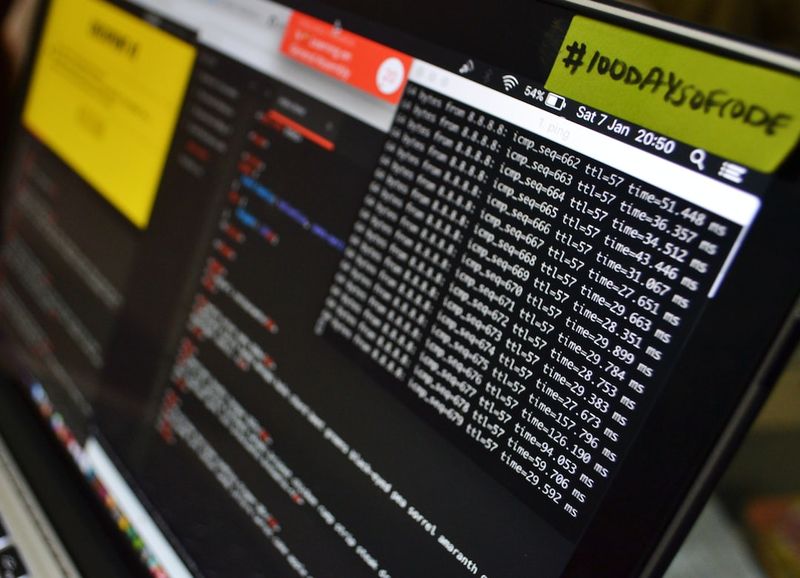23andMe Faces Cybersecurity Breach: Client Data Listed for Sale
Introduction
Last week, the popular DNA testing company 23andMe experienced a cybersecurity breach when client information was listed for sale on a cybercrime forum. This alarming incident has raised concerns about data privacy, genetic information security, and the vulnerability of personal data in the digital age.
The Breach: What Happened?
On October 1st, a post appeared on a cybercrime forum offering a sample of what was claimed to be “20 million pieces of data” from 23andMe. The post touted this data as “the most valuable data you’ll ever see.” Initially, one million lines of data were published, but on October 4th, the individual responsible started offering bulk data profiles for sale in batches of 100, 1,000, 10,000, and 100,000 profiles, priced between $1 and $10 per account.
The compromised data includes names, usernames, profile photos, gender, birthdays, geographical locations, and genetic ancestry results. 23andMe has confirmed the legitimacy of the breach, stating that the threat actors used exposed credentials from other breaches to access 23andMe accounts and steal sensitive data. These recycled login credentials were obtained from previous cyber incidents, highlighting the interconnectedness of data breaches and the importance of securing personal information.
Implications and Concerns
One of the key concerns arising from this breach is the potential compromise of genetic personal information. Genetic testing provides individuals with valuable insights into their ancestry and health risks, but it also creates a vast repository of highly sensitive data. This breach has exposed the risks associated with storing such personal information and raises concerns about its future use.
Moreover, reports indicate that many of the compromised accounts were those that had opted into the “DNA Relatives” feature on the 23andMe platform. This feature allows users to connect with potential relatives based on shared genetic information. The fact that the threat actor was able to scrape data associated with potential relatives highlights the potential for the breach to extend beyond the immediate individuals affected.
Data Privacy and Cybersecurity
This breach serves as a stark reminder of the importance of robust data privacy and cybersecurity measures. As individuals entrust companies like 23andMe with their most personal information, it becomes imperative that organizations take every precaution to protect that data. This incident also underscores the need for users to prioritize the security of their login credentials and avoid reusing passwords across multiple platforms.
Addressing these cybersecurity challenges requires a multi-faceted approach. Organizations must invest in state-of-the-art security protocols and continuously update their systems to stay ahead of evolving threats. Additionally, individuals must educate themselves about best practices for online security, such as using strong, unique passwords and enabling two-factor authentication.
The Role of Regulation
Given the increasing frequency and scale of data breaches, regulators must play a proactive role in safeguarding individuals’ personal information. Stricter data protection laws and robust enforcement mechanisms are needed to hold organizations accountable for any negligence in safeguarding sensitive data.
However, regulation alone is not sufficient. Companies must also embrace a culture of privacy and security, embedding strong data protection practices into their DNA. Building trust with consumers will be vital, and organizations must demonstrate their commitment to protecting personal information.
Editorial: Balancing the Benefits and Risks of Genetic Testing
Revisiting the Ethical Questions
The 23andMe breach not only raises concerns about individual privacy but also reopens ethical debates surrounding genetic testing. While genetic testing offers many benefits, including medical insights and family connections, it also presents potential risks.
Genetic information is highly sensitive and unique to each individual. It contains details about a person’s ancestry, health predispositions, and potentially even future health. The breach of such personal data calls for greater deliberation on how companies handle and secure this information – and how users can make informed decisions about sharing it.
Ensuring Informed Consent
Greater transparency and informed consent are critical aspects of genetic testing. Users must be fully aware of the potential risks associated with sharing their genetic information. While companies like 23andMe have privacy policies and consent mechanisms in place, this breach reveals the need for more effective measures.
Individuals considering genetic testing should have a clear understanding of how their data will be stored, used, and protected. Privacy policies should provide comprehensive information about the measures in place and explicitly outline any potential risks. This would allow individuals to make informed decisions about whether the benefits of genetic testing outweigh the potential risks.
Striking a Balance
A balance needs to be struck between the potential benefits and risks of genetic testing. The breach at 23andMe serves as a reminder that individuals need to carefully consider the implications of sharing their genetic information. Companies must also prioritize the security and privacy of their users’ data to ensure that the benefits of genetic testing are not overshadowed by privacy and cybersecurity concerns.
Conclusion and Advice
The breach at 23andMe highlights the urgent need for improved data security and privacy measures surrounding genetic testing. Individuals must take steps to protect themselves by using unique, strong passwords and enabling two-factor authentication on their accounts.
Companies like 23andMe must invest in robust security systems and adhere to comprehensive data protection protocols. They must also enhance transparency and consent mechanisms to ensure that users fully understand the risks associated with genetic testing.
Regulators should enact legislation that holds companies accountable for the security of personal data. This breach serves as a wakeup call for individuals, companies, and lawmakers to collectively address the evolving challenges of cybersecurity and data privacy in the digital age. Only through collective action can we hope to strike the necessary balance between the benefits and risks associated with genetic testing.

<< photo by Ozan Çulha >>
The image is for illustrative purposes only and does not depict the actual situation.
You might want to read !
- Data Thieves Exploit New Certificate Abuse Tactic
- Taiwan Ramps Up Investigation into Companies Selling Chip Equipment to China’s Huawei, Defying US Sanctions
- The Rise of DMARC: Leveling the Playing Field for Online Security
- Google and Yahoo’s DMARC Push: A Wake-Up Call for Companies
- 23andMe Cyberbreach: Unveiling the Potential Risks and Rewards of Exposed DNA Data
- Why Smart Light Bulbs Could Be a Gateway for Password Hackers
- Norway’s Call for an All-European Ban on Meta’s Targeted Ad Data Collection
- Tech Distrust: Unveiling the Findings of the Malwarebytes Survey
- Genetic Testing Company Faces FTC Accusations of Health Data Breach
- California’s Swift Move Towards Data Privacy: Demanding Personal Info Erasure from Shadowy Data Brokers
- California’s New Frontier: Taking Control of Data Brokers and Personal Information
- The Mom’s Meals Data Breach: Understanding the Impact and Taking Action
- SEC Investigating Progress Software Over MOVEit Hack: Examining the Regulatory Fallout of Cybersecurity Breaches
- The GitHub Security Breach: Unmasking Password-Stealing Commits Masquerading as Dependabot Contributions
- “Unveiling a Vulnerability: The Potential Security Breach in JetBrains TeamCity”
- NYC Subway Suspends Trip-History Feature Amidst Growing Privacy Concerns
- Digital Privacy: Evaluating the Impacts of Meta’s Race to Dethrone Twitter
- The Global Dilemma: Instagram Threads Stumbles Due to Privacy Concerns
- Breaking Down the Ongoing Threat: Unveiling Over 3 Dozen Data-Stealing Malicious npm Packages
- The Middle East’s Uphill Battle: Addressing DFIR Challenges
- The Rise of Exploits: The Grave Consequences of Adobe Acrobat Reader Vulnerabilities
- Privacy Breach: DNA Testing Service 23andMe Probes User Data Theft
- Car Manufacturers’ Negligence Leaves Owners Powerless Over Personal Data
- California’s Privacy Battle: Protecting Personal Data vs Business Interests
- “India’s Digital Personal Data Protection Bill: A Bold Step Towards Safeguarding User Privacy”
- The Key to Defeating Digital Criminals: Embracing Basic Cyber Hygiene Practices
- Discovering the Covert Connection: DragonEgg Android Spyware and LightSpy iOS Surveillanceware Linked
- The Rise of Rogue Connections: Unveiling the Dangers of Fake Offline Mode




